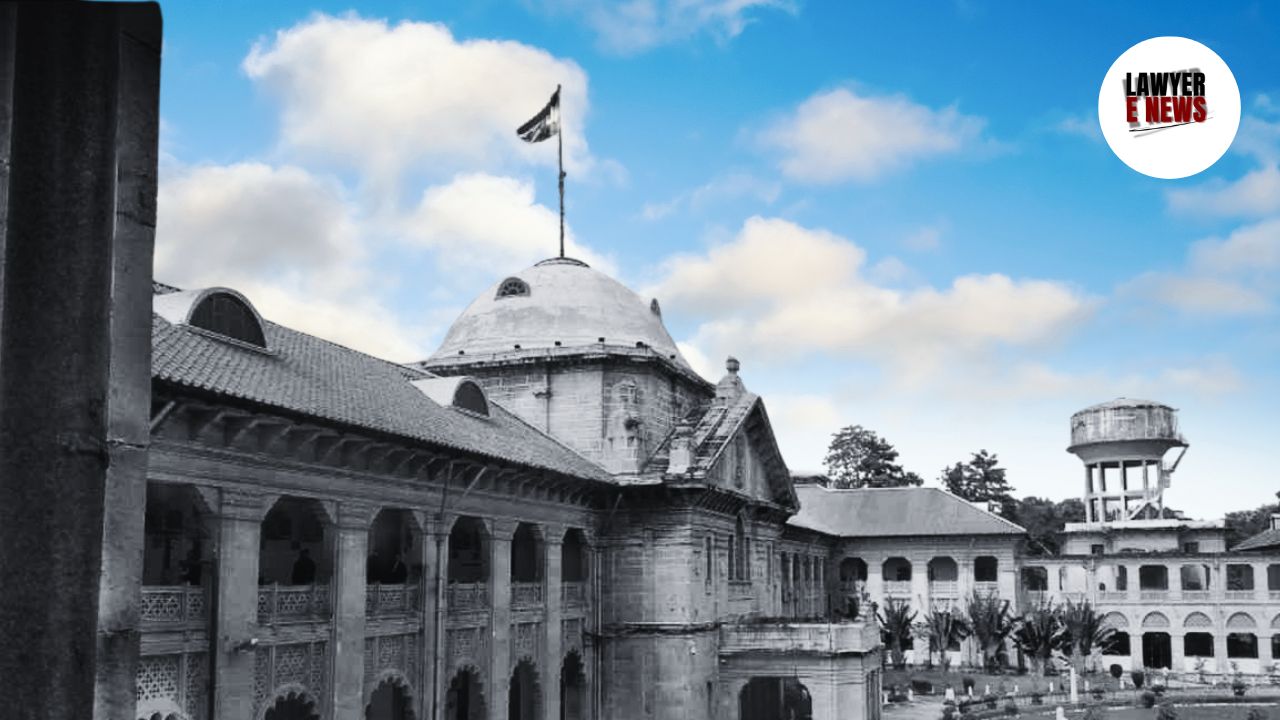-
by Admin
15 February 2026 5:35 AM



On September 23, 2024, the Allahabad High Court (Lucknow Bench) delivered a significant ruling in Akhtar Khan vs. District Judge, Pratapgarh & Ors., dismissing a petition filed under Article 227 of the Constitution. The petitioner, Akhtar Khan, challenged the rejection of an application to summon the original Will dated 21.03.1952 under Order XI Rules 12/14 of the CPC. The Court upheld the decisions of the lower courts, rejecting the application and dismissing the revision at the admission stage, emphasizing that the certified copy of the Will was admissible as evidence under the Registration Act, 1908.
The dispute arose from a land ownership claim based on competing Wills. Akhtar Khan, the petitioner, claimed ownership of 2/3rd of the disputed property based on a Will dated 21.03.1952 allegedly executed by Smt. Hardei in favor of Satya Prakash and his brothers. The respondents, heirs of Satya Prakash, claimed ownership through a Will dated 24.01.1973. The case had been remanded for retrial after the first appellate court reversed the trial court’s dismissal of the suit.
During the retrial, Akhtar Khan sought to summon the original Will of 1952, allegedly in the possession of the respondents, but his application was rejected by the trial court, prompting the present petition.
Admissibility of Certified Copy of Will: The petitioner argued that the certified copy of the Will dated 21.03.1952, submitted as secondary evidence, was inadmissible and sought production of the original Will. However, the Court emphasized that under Section 57(5) of the Registration Act, a certified copy of a Will registered in Book No. 3 is admissible for proving its contents, stating: “A certified copy of the Will is admissible in evidence. Therefore, the self-harming submission of the petitioner that the certified copy of the Will filed is not admissible, is not correct" [Para 41].
Failure to Prove Possession of Original Will: The Court found that the petitioner failed to establish that the original Will was in the respondents' possession. The petitioner had not mentioned this fact in the written statement, and the respondents, particularly Poornawati Sharma (PW-1), denied having the original document. As a result, the Court ruled that the trial court was right in rejecting the application for production of the document [Para 36].
Misjoinder of Parties: The petitioner incorrectly impleaded judicial officers (the District Judge and Civil Judge) as parties, contrary to established legal principles. The Court reiterated the Supreme Court's ruling in Jogendrasinhji Vijaysinghji vs. State of Gujarat, holding that judicial officers do not defend their orders in higher courts and should not be made parties. However, since the respondents did not raise an objection during the proceedings, the Court did not dismiss the petition on this ground [Paras 8-9].
Delay and Attempt to Cure Gaps in Evidence: The Court noted that the application was filed at a highly advanced stage of the trial, after the conclusion of evidence and arguments by the respondents. It viewed the application as an attempt by the petitioner to fill gaps in his case, observing: “The application under Order XI Rules 12/14 CPC has been moved at this belated stage to cure the lacuna in the petitioner’s case, which has been highlighted during submissions advanced on behalf of the plaintiff” [Para 38].
The Allahabad High Court dismissed the petition, finding no illegality in the lower court's rejection of the application or in the revisional court's dismissal of the revision at the admission stage. The Court reaffirmed that the certified copy of the Will was admissible under the Registration Act and that the petitioner failed to establish grounds for summoning the original document.
Date of Decision: September 23, 2024
Akhtar Khan vs. District Judge, Pratapgarh & Ors.
